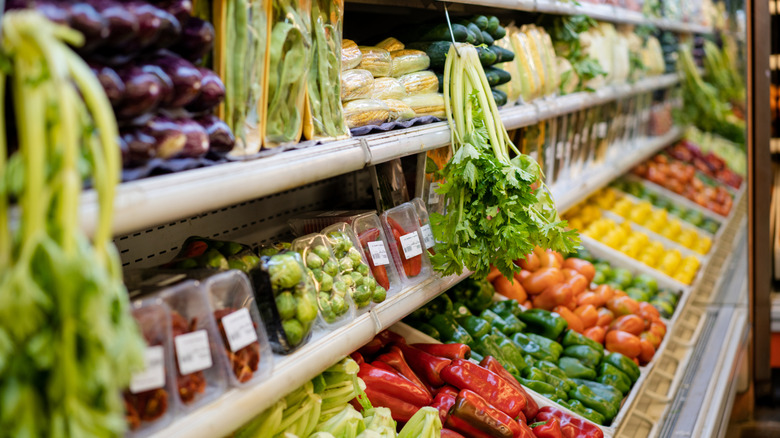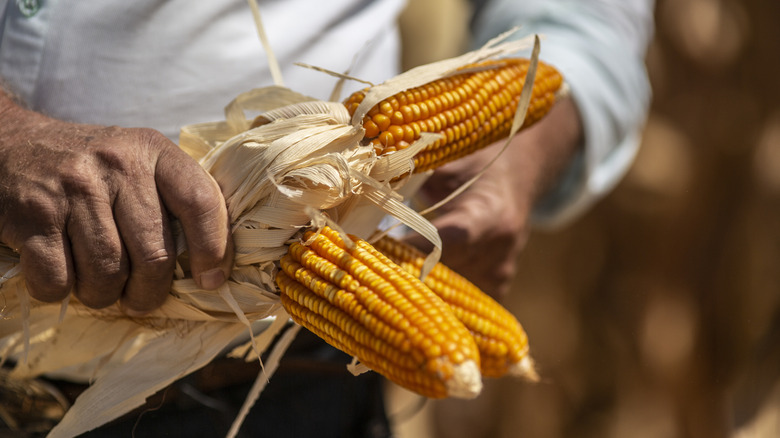Farmers Are Struggling To Put This Dinner Favorite On Tables In 2025
In addition to being one of the many foods that changed the world, corn plays a crucial role on dinner tables across the U.S. This staple grain can also be found in a wide range of products, from cereal to medication to alcoholic beverages and numerous other goods. Our reliance on corn may soon be tested, however, at least based on the decreased yields farmers have reported throughout the nation. Volatile weather is a major factor in the lackluster harvest, and it appears that unexpected weather patterns have affected numerous corn-growing regions.
In Ohio, corn planting season experienced delays well into the summer months due to cold weather and excessive rain. On the other hand, a lack of precipitation caused concern among North Carolina farmers in the spring of 2025. Extreme weather was also to blame for North Carolina's poor corn crop in 2024, which dropped from $750 million in earnings (in a typical year) to just $250 million, according to Carolina Public Press. While corn is a hugely important food source, the majority of the crop goes towards animal feed (as well as the production of ethanol biofuel). As a result, poor crop yields may affect other food sources like chicken, pigs, and cattle.
Factors putting pressure on corn farmers
With so many different types of corn out there (and so many tasty ways to use them), poor crop yields could really do a number on the American diet. Sadly, the ongoing effects of climate change are bound to impact corn and many other crops, as climate change contributes to weather conditions that may challenge the agricultural industry. For instance, corn crops can only temporarily tolerate extreme high or low temperatures, and research shows that climate change is causing global temps to steadily increase. And while overabundant rainfall can destroy corn crops, a lack of precipitation is just as damaging.
American corn farmers are also facing other challenges that are putting their livelihoods in peril. Corn commodity prices have reduced by about half in 2025 (via NCGA), which means that crops will bring in less money than in years past. At the same time, costs for farm equipment and supplies are at a record high, so many farmers are unable to purchase the necessary items to support healthy crops. While there isn't much you can do about these issues on an individual level, consumers can take certain steps to reduce their carbon footprints and potentially slow the effects of climate change. To this end, focusing on local food sources and eating plant-based meat products are great ways to mitigate your impact on the environment.

